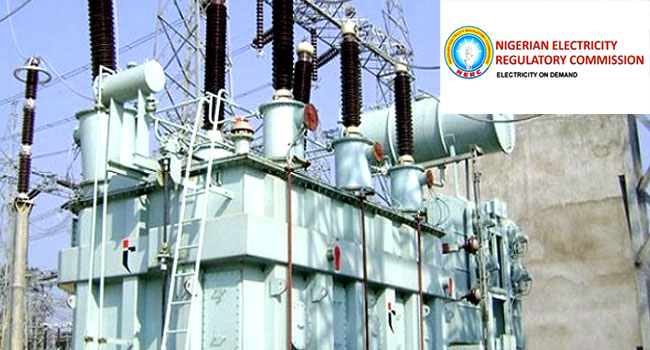
Residents, business owners, hospital administrators, and others in Northern Nigeria have expressed concern as the region marks its eighth consecutive days without electricity, leading to significant disruptions in essential services and economic activities.
The outage, which began last Monday, was triggered by the tripping off of the 330kV circuit transmission line between Benue and Enugu, as well as the one between Shiroro and Kaduna, thereby severely impacting numerous Northern states.
The Transmission Company of Nigeria (TCN) said the 330kV DC Ugwaji-Apir double circuit tripped due to a fault, plunging the Northeast, Northwest, and parts of Northcentral Nigeria into darkness.
Hospitals and laboratories, heavily reliant on stable electricity for medical equipment and diagnostic services, are facing increasing difficulties, resulting in delays and reduced healthcare availability for patients.
Local businesses, particularly frozen food vendors that depend on refrigerators, are also feeling the strain, with many reporting significant losses due to spoiled inventory.
Water vendors have dramatically increased their prices, effectively doubling the cost of water as they contend with the added expenses of running generators for boreholes.
Vandals have also reportedly taken advantage of the situation, targeting transformers and other power infrastructure, which further complicates efforts to restore service.
TCN has acknowledged the ongoing outage, assuring residents that they are taking “every possible measure” to restore power to the Northern region.
The company attributed delays in restoration to infrastructure challenges exacerbated by vandalism and insecurity, which have created additional setbacks in the recovery process.
This latest fault in the 330kV DC transmission line occurred just days after Nigeria experienced three national grid collapses within a single week.
In 2024, Nigeria faced multiple national grid disturbances, resulting in widespread power outages and reduced electricity generation.
Patients at the Aminu Kano Teaching Hospital (AKTH) in Kano said mosquitoes disrupt their sleep, especially at nights when the power from generating sets is off.
Malam Umaru Direba, a patient, stated that the absence of electricity worsens the mosquito problem, forcing him to rely on mosquito nets and repellents.
A hospital official noted that AKTH spends around N500,000 daily on diesel, limiting generator use mainly to evenings, although solar inverters help keep emergency services running.
Outside the hospital, frozen food vendors like Husseini Rufai and Salihu Usman at Tarauni market report losses, saying they are unable to store perishable goods without electricity.
Kano Electricity Distribution Company (KEDCO)’s Chief Commercial Officer, Abubakar Jimeta, attributed the prolonged outage to issues on the national grid and vandalism on critical transmission lines and assured that efforts to restore supply are underway.
Muhammad El-Kabeer, a frozen fish dealer, said the ongoing power outage has heavily impacted his business, as he now relies on a generator set, which significantly raises the cost of his products.
El-Kabeer mentioned that he runs his generator set for about six hours to keep the fish fresh, but that the high cost of fuel has pushed up the prices of frozen fish, reducing customer demand and, consequently, his income.
Danladi Idi, who sells fish at Gombe Main Market, said: “If the power situation isn’t resolved soon, small vendors like me may soon be out of business, as we can no longer return unsold fish to the dealer as before.”
The blackout has also affected rice milling businesses. Malam Umar Musa, a rice miller on the southern bypass of Gombe, said operations have come to a halt. “We have had to send several youths home for the past five days, waiting for the situation to improve,” he said.
Bashir Abdullahi, a resident of the Bayan Kara area in Birnin Kebbi, said his frozen food business in Gesse has been severely impacted by the ongoing power outage.
“We have endured significant losses. My entire stock of fish and chicken spoiled because I couldn’t keep the freezers running without a generator,” he lamented.
He also mentioned that the community transformer was vandalised, and while the police apprehended the suspects and the buyer of the stolen cables, they were later released by the court without penalty.
Timber traders and artisans in Jos, Plateau State, said they recorded substantial customer losses due to the prolonged power outage.
Abubakar Salihu, a timber trader at Jos’ Timber Market, said: “This is usually a busy market, but today, it’s empty. We come to the market, wait, and then return home. Without power, we can’t operate the machinery needed for timber work, and the situation is taking a toll on us.”
Meanwhile, hoodlums have vandalised electrical transformers in communities like Anguwan Rogo and Gangare in Jos North Local Government Area.
Muhammad Munir, a Gangare resident, said: “They vandalised our transformer, stealing crucial components that will require substantial funds to replace.”
Alhaji Bala Tanko of Anguwan Rogo reported a similar incident, noting that “Hoodlums took advantage of the blackout to steal wires from our transformer, leaving us in darkness for over six days.”
In response, the Jos Electricity Distribution Company (JED) has urged residents to safeguard electrical installations.
The ongoing power outage has hit small businesses and households hard in various parts of Kaduna, impacting livelihoods and daily life.
Halima Mu’azu, a resident of Hayin Bello in Rigasa, said her mother’s business of selling kunu and zobo drinks has suffered.
Moreover, transformer vandalism has added to the community’s challenges. Residents of Hayin Bello in Rigasa reported that their transformer was vandalised at night, compounding the electricity woes. Community leader, Alhaji Ibrahim Fagge said they are pooling funds to repair the transformer as the blackout may persist even if the main power supply returns.
Friday Ejembi from the Obotu-Ugboju community in Otukpo LGA expressed frustration over being without electricity for over ten days.
Artisans and business owners are increasingly concerned about their sustainability as fuel prices hover between N1,200 and N1,250 in Makurdi.
Mwuese Terkula, a frozen fish seller in Gboko LGA, voiced her worries about the future of her business: “Without a stable electricity supply, I can’t store fresh supplies in my freezer. If this situation continues, I may have to shut down my business altogether.”
Milling machine operators in Bauchi have been especially hard-hit, unable to process grains into flour, which has left many families without essential food staples.
Alhaji Sani Abubakar, the Chairman of the Fresh Tomato, Pepper, Onion and Vegetable Sellers Association, said: “Patronage has dwindled over the past month. Customers aren’t buying in large quantities, and some of our goods have decayed due to the lack of electricity.”
In Adamawa, residents like Hajiya Asma’u from the 80 Units Housing Estate in Jimeta have suffered losses of perishable goods worth thousands of naira because of the outage.
Blessing Tunoh, the Yola Electricity Distribution Company (YEDC) Communications Officer, noted that the company recorded 37 cases of vandalism in the first quarter of the year.
In Yobe State, the situation is not better. Commercial water vendors in Damaturu are capitalising on the water crisis, selling water to the highest bidder as more than 70% of residents rely on commercial boreholes connected to electricity.











